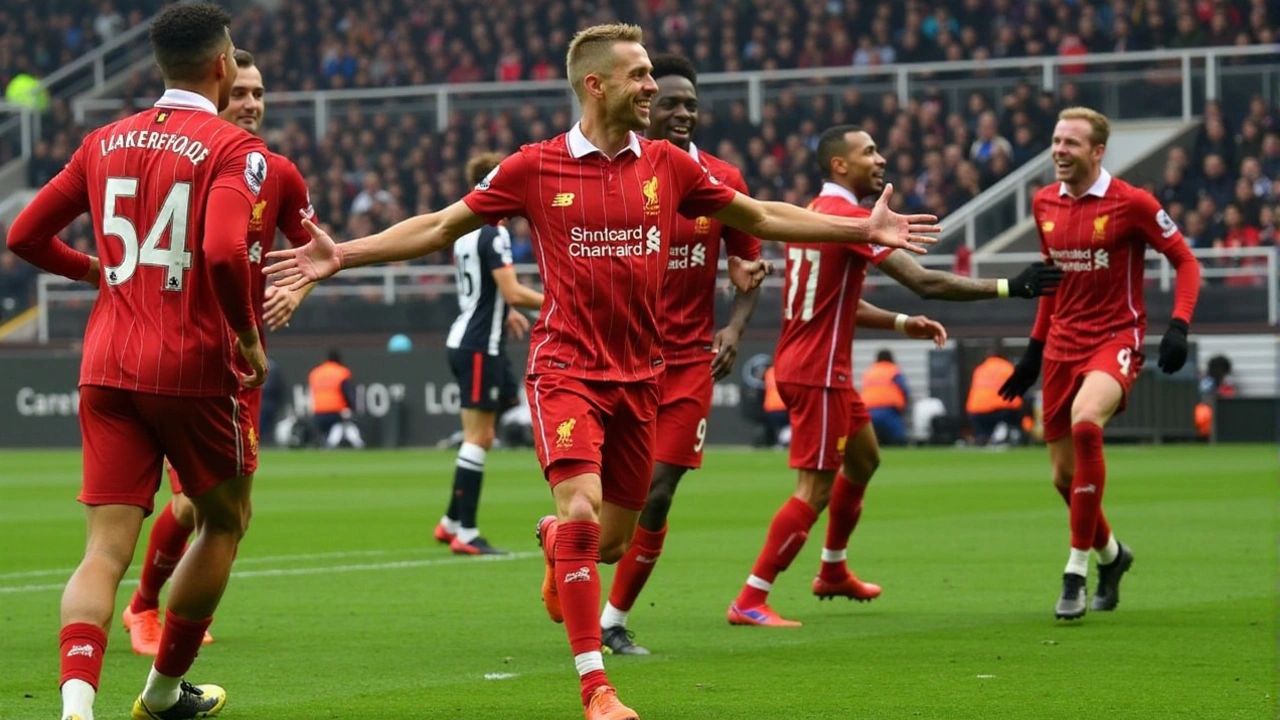
Severe Weather Forces Postponement of Everton vs Liverpool Premier League Match
The fierce rivalry between Everton and Liverpool, known as the Merseyside derby, has faced an unexpected delay due to extreme weather conditions brought about by Storm Darragh. The match had been poised to unfold on Saturday, December 7, 2024, a day long awaited by fans of both teams residing in the storied city along the River Mersey. Yet, the anticipated afternoon of football at Goodison Park has been interrupted due to safety concerns arising from unrelenting wind gusts and constrained visibility caused by the storm.
An emergency meeting involving crucial stakeholders, including representatives from the two clubs, Merseyside Police, and Liverpool City Council, reached a consensus that the match could not proceed as initially planned. The arena, which was set to host what many fans believed could be the final top-flight clash between Everton and Liverpool at Goodison, now stands empty, awaiting a new date for the derby. This standstill comes as an unwavering amber wind warning remains in effect, with meteorological predictions indicating that the severe conditions will persist through to 6:00 GMT on Sunday.
Meeting at Goodison Park Highlights Safety Concerns
The decision to reschedule the match was not taken lightly. A Safety Advisory Group convened to thoroughly assess the potential risks posed to fans, players, and staff. The evidence gathered during the meeting painted a clear picture of substantial and tangible hazards, with prevailing winds capable of disrupting match-day operations, exacerbating the vulnerability of infrastructure, and posing legitimate threats to the well-being of all involved. Under these circumstances, the conclusion was reached that the only prudent course of action was to delay the game until such dangers subside.
Phil Stockton, a meteorologist with the Met Office, outlined the troublesome aspects of the storm, which he described as set to bring ‘unprecedented challenges not seen in several years in the region.’ Storm Darragh has not only brought rain, which could lead to localized flooding, but its powerful gusts have prompted nightmare scenarios of toppling structures and flying debris that imperil congregations of crowds, as would be expected in a high-profile sporting event.

Apologies and Assurances from Clubs
Everton and Liverpool have communicated their genuine apologies to the disappointed yet understanding fanbases. Emphasizing their commitment to supporter safety and thanking fans for their cooperation aligned with common priorities when handling such extraordinary circumstances, the clubs have promised continual updates on the rescheduling process. Though inconvenience may be inevitable, all tickets purchased for the original event have been assured valid for the new date, ensuring fans will not miss what promises to still be an unforgettable derby, in calmer weather conditions.
The camaraderie of these two teams, fierce on the field yet united off it when faced with adversity, is duly reflected in these statements and actions. Each club's commitment is to ensure that fans — their lifeblood through triumphs and trials — are welcomed back eagerly and safely.
Rescheduling the Merseyside Derby: Next Steps
As this storm ravages more than just stadium schedules, the football community waits in anticipation of when the historic Everton and Liverpool derby match will take place. The rearrangement requires precise coordination to avoid calendar congestion, a task both Premier League officials and club executives now have to tackle without losing the fervor integral to the fixture.
Football fans and pundits alike eagerly speculate on the implications of this delay. From potential shifts in team momentum to transfer window impacts and strategic reevaluation, the potent mix of football and Mother Nature adds an unpredictable variable to an already electric season.

Weather Impact: A Growing Consideration in Sports Scheduling
Unpredictable weather has fast emerged as a considerable factor affecting sports globally. The postponement of the Everton vs Liverpool fixture is not an isolated event but part of a broader narrative regarding the planning and adaptability required in sports management today. Meteorological variabilities and extreme patterns threaten outdoor sport, demanding significant investments in technology to better predict and react to these conditions.
The dynamics between climate and sports were once an afterthought but have become top of mind for associations globally, as evidence develops on how environmental elements can decisively influence games' timelines and athletes' performance.
Conclusion
Ultimately, the postponement of the Merseyside derby is a testament to the prioritization of safety over spectacle. While eager fans of the rivals wait with bated breath for a revised kick-off date, the collaborative spirit among clubs, advising safety authorities, and loyal supporters offers a glimmer of hope amidst the turmoil woven by the destructive nature of Storm Darragh.
This occasion serves as a reminder that as humanity and sport grapple with nature’s surprise interventions, adaptability and resilience serve as our most potent allies in continuing the beautiful game, celebrated not solely in this city but across the world.
Write a comment